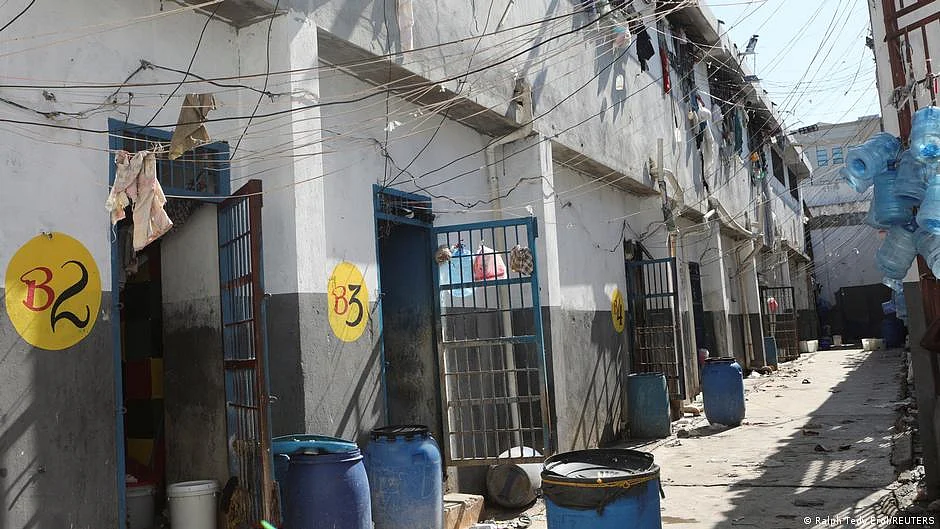Haiti declares state of emergency after prison break
Haiti's economy minister says police have been told to "use all legal means at their disposal" to enforce an overnight curfew

Haiti's government declared a state of emergency on Sunday, following several days of violence in the capital culminating in an attack on the country's main penitentiary which left most of its inmates at large.
It said a curfew would be enforced from 6 p.m. to 5 a.m. through Wednesday in the Ouest region, which includes the capital Port-au-Prince, and added that both the state of the emergency and curfew periods could be extended.
Police told to 'use all legal means'
Haiti's Economy Minister Patrick Michel Boisvert signed the government statement, deputising for Prime Minister Ariel Henry.
Security forces had "received orders to use all legal means at their disposal to enforce the curfew and detain those who violate it," the government said.
Gang leader Jimmy Cherizier, a former police officer, has claimed responsibility for the recent violent attacks that he says aim to oust Prime Minister Henry.
They began as Henry went on a trip to Kenya, seeking to salvage a deal for the African country to lead an international peacekeeping mission in the country.
Asked in Kenya when he felt it would be safe to return to Haiti, Henry did not comment.
What do we know about the jailbreak?
The violence came to a head overnight on Saturday with an attack on the country's largest prison.
Prison gates were open on Sunday, with no security personnel in sight. Many families of prisoners held at the facility rushed there to check on loved ones.
The facility, built to hold 700 prisoners, had some 3,687 inmates locked up as of February last year, according to the rights group RNDDH. Fewer than 100 were believed to still be inside the facility after the attack, according to NGO workers.
They included 18 retired Colombian soldiers accused of working as mercenaries in the July 2021 assassination of Haitian President Jovenel Moise.
In a statement on social media on Sunday, the Ministry of Communication said the attack on the prison "sought to release those who were imprisoned for acts of murder, kidnapping, and other serious crimes."
The ministry acknowledged the failure of police forces to prevent the escape of many prisoners, saying the attack left many inmates as well as prison staff injured.
Haiti's growing gang violence
The armed clashes between gangs and police come on the heels of a flurry of violent protests that were simmering for some time but ramped up in the last few days as Henry visited Kenya.
Henry, who came to power after Moise's assassination, had previously said that he would step down by early February.
He said later that security must first be re-established to ensure free and fair elections.
According to the UN, Haiti's National Police has roughly 9,000 officers to provide security for the country's more than 11 million inhabitants.
The Kenyan policing mission followed months of failed efforts to find a country willing to lead the operation.
UN and Western-led deployments are viewed skeptically in Haiti, following past cases of child sexual abuse and a 2010 cholera outbreak that was traced back to a barracks in a country that had previously eradicated the disease.
Follow us on: Facebook, Twitter, Google News, Instagram
Join our official telegram channel (@nationalherald) and stay updated with the latest headlines
